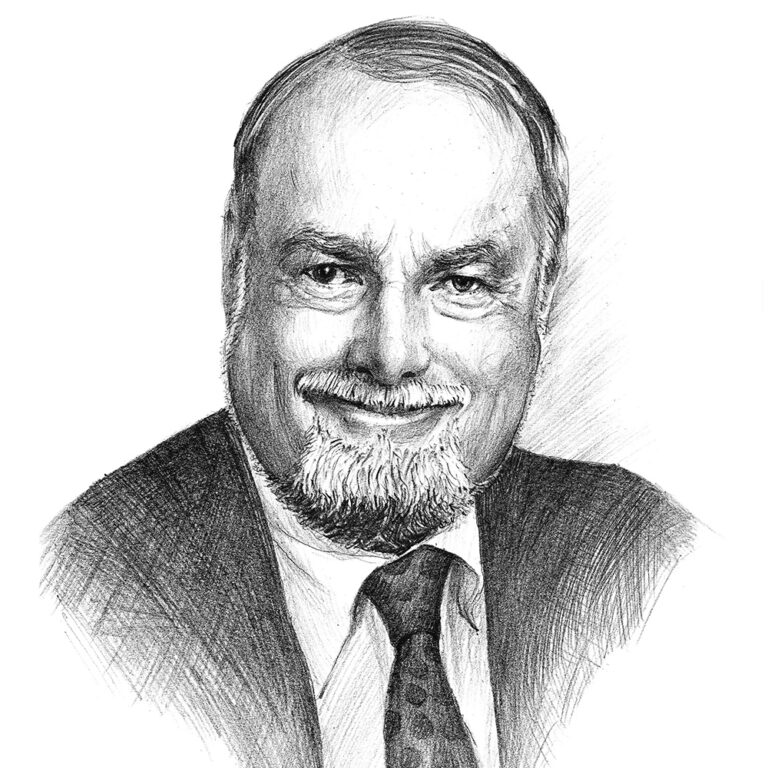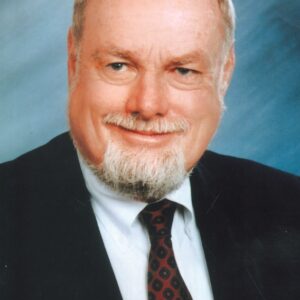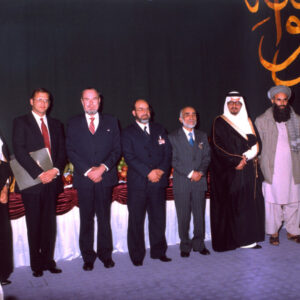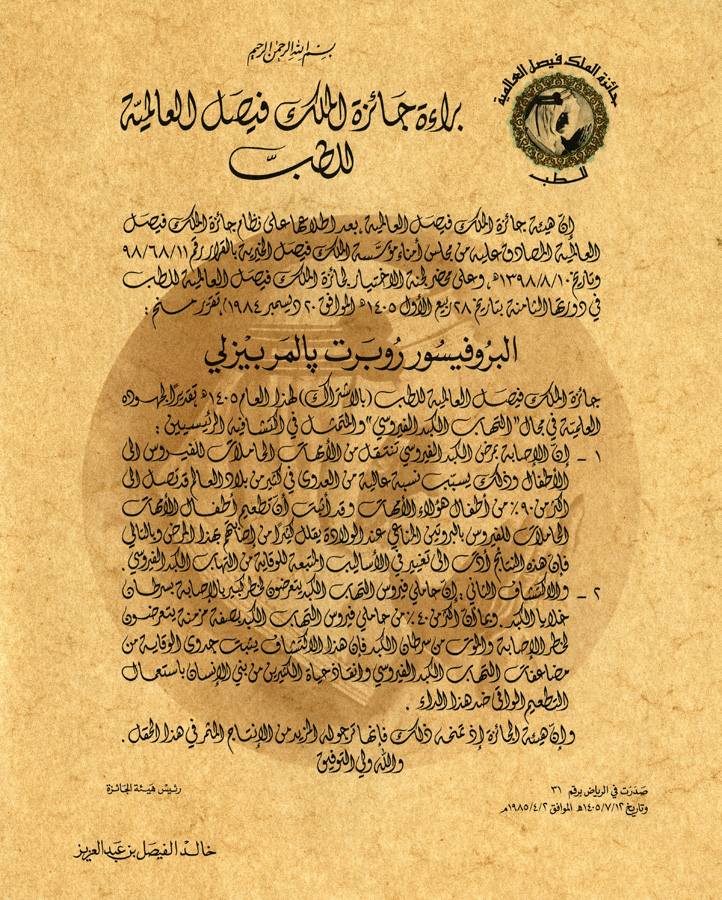

Professor R. Palmer Beasley
King Faisal Prize in Medicine 1985 Laureate
Topic: "Viral Hepatitis "
Hepatitis B is an unusual virus since it is the first human virus known to cause liver cancer, for which my own research is being honored here this evening

Robert Beasley earned his undergraduate degree from Dartmouth College, his M.D. from Harvard Medical School, and a master’s degree in preventive medicine from the University of Washington in Seattle in 1969. He was a Fellow of the American Epidemiological Society and the American Public Health Association. Beasley worked for more than 20 years as a Professor of Preventive Medicine at the University of Washington in Seattle. He worked as the Director of the American University Medical Center in Taiwan since 1979 and as a professor at the Department of Epidemiology in Washington University since 1981.
Professor Beasley’s academic and educational accomplishments in the field of public health, as well as his scientific contributions to society, were enormous. During his over 20-year career as an epidemiologist, he worked on a variety of epidemiological problems, including HIV/AIDS, plague, rubella, rheumatoid arthritis, and Waardenberg syndrome. However, he was most renowned for his seminal research into the epidemiology of Hepatitis B in China. His relentless pursuit to unlock the deadly mystery posed by the hepatitis B virus resulted in many important discoveries, including mother to infant transmission of the virus, protecting infants with immunoglobulins and vaccines, proving that the hepatitis B virus is a major cause of primary liver cancer, and establishing an effective vaccine to prevent it, which the WHO recognized as the first anti-cancer vaccine. Further advocacy for the vaccine resulted in the global Hepatitis B immunization program.
Professor Beasley published numerous scientific papers and had a long list of invited lectureships. His scientific accomplishments had earned him several prestigious international awards.
This biography was written in the year the prize was awarded.
- He held many positions including:
- Head of the Division of Chronic Viral Infections in the Department of Medicine at the University of California in San Francisco in 1986.
- Ashbel Smith Chair at UT-Houston Health Science Center, and Dean of the School of Public Health at the University of Texas in 1987.
- He received many awards and honors including:
- Charles S. Mott General Motors Prize for Research on Cancer in 1987.
- Prince Mahidol Award for Medicine in 1999.
- Health Medal of the First Order by Taiwan Government in 2000.
- Hepatitis B Foundation Distinguished Scientist Award in 2010.
- Maxwell Finland Award for Scientific Achievement in 2011.
- Professor Robert Palmer Beasley passed away in Houston on 25/8/2012.




